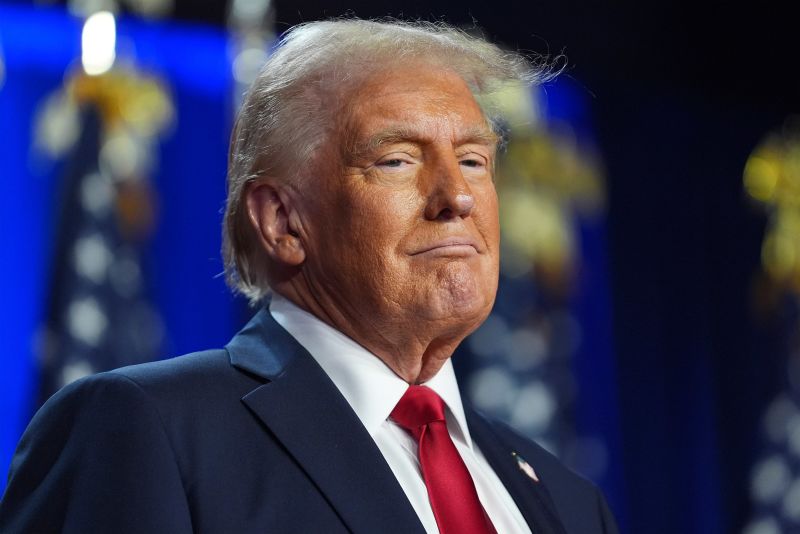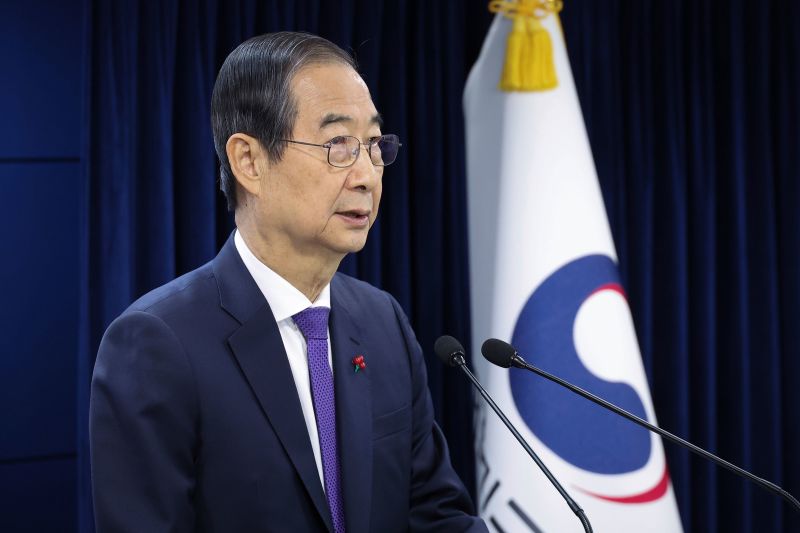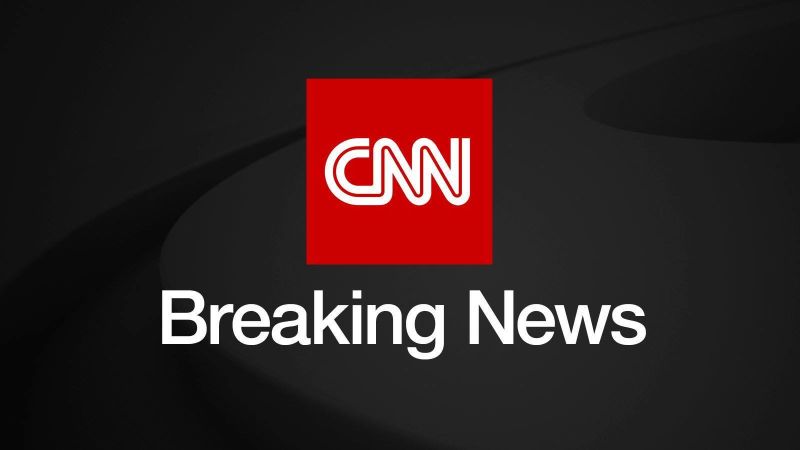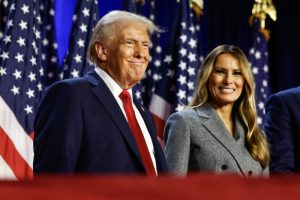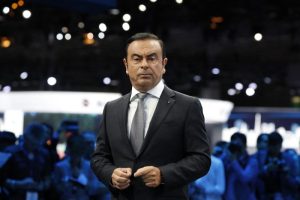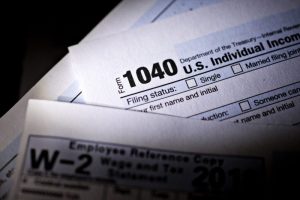Economic upheaval and political opportunity – what Trump’s return could mean for China
China is bracing for what could be a volatile and highly unpredictable path ahead in its escalating great power rivalry with the United States, after Donald Trump made a historic political comeback to win the race to the White House.
His return could bring tariffs as high as 60% on Chinese goods – which could devastate economic growth in the world’s second largest economy and upend global supply chains – more technology controls and fiery rhetoric on Beijing, heightening tension in already rocky relations between the superpowers.
But Trump’s protectionist trade posture and transactional approach to foreign policy may also weaken US alliances and global leadership, presenting opportunities for Beijing to fill the void of America’s retreat and shape an alternative world order.
“Trump’s return to power will certainly bring greater opportunities and greater risks for China,” said Shen Dingli, a foreign policy analyst in Shanghai. “Whether it eventually leads to more risks or more opportunities depend on how the two sides interact with each other.”
Officially, China has sought to present a neutral stance on Trump’s win. Its Foreign Ministry said on Wednesday it “respected” America’s choice.
Chinese leader Xi Jinping congratulated Trump on Thursday. Known for his fondness for autocrats, Trump has regularly praised Xi and called the Chinese leader “a very good friend,” even as US-China relations nosedived under his watch.
Xi told the president-elect that China and America can “find the right way” to “get along in the new era,” according to a readout from the Chinese Foreign Ministry.
But beneath the calm surface, Beijing is likely bracing for impact – and uncertainties.
“Trump is a very mercurial person,” said Liu Dongshu, an assistant professor of international affairs at the City University of Hong Kong. “It remains to be seen whether he will implement, and to what extent, the policies he promised during the election campaign, and if he will stick to his first-term agenda.”
Sky-high tariffs
During Trump’s first term in office, the tough-talking populist who promised to make “America great again” launched a bruising trade war with China, backlisted Chinese telecom giant Huawei on national security grounds and blamed Beijing for the Covid-19 pandemic. By the end of his first term, bilateral relations had plunged to their lowest point in decades.
This time around, Trump has threatened on the campaign trail to slap 60% tariffs on all goods made in China and revoke its “permanent normal trade relations” status, which has given China the most favorable trade terms with the US for more than two decades.
This punitive measure, if carried through, could deliver a body blow to an economy already beset by a property crisis, flagging consumer demand, falling prices and mounting local government debts.
Investment bank Macquarie estimates that, at the sky-high 60% level, the tariffs are likely to cut the country’s growth by a full two percentage points, which would be just under half of China’s expected full-year economic expansion rate of 5%.
“Trade war 2.0 could end China’s ongoing growth model, in which exports and manufacturing have been the main growth driver,” Larry Hu, chief China economist at Macquarie, wrote in a Wednesday research note.
Investors appeared to predict this outcome as Trump’s lead over Vice President Kamala Harris widened on Wednesday, causing Chinese stocks and the yuan to fall sharply.
Tariffs act as a tax on imports, hurting consumers in the country imposing them, as well as businesses that rely on imported raw materials and intermediate goods to make finished products. A significant escalation of global trade tensions will likely inflict pain not just on China and the US, but also on other countries involved in global supply chains.
Unlike his Republican predecessors who hailed from the establishment, Trump wields an erratic and unconventional approach to policy making, adding to Beijing’s sense of uncertainty.
“Trump began his first term as an enthusiastic admirer of Xi Jinping, before levying tariffs and then vilifying Beijing during the pandemic,” said Daniel Russel, vice president of international security and diplomacy at the Asia Society Policy Institute.
“So, Beijing is likely to approach the President-elect with caution — probing to ascertain which Trump to expect and where there may be opportunities to exploit,” added Russel, who previously served as the top Asia advisor to former President Barack Obama.
Challenges and opportunities
But Trump’s “America First” agenda and transactional worldview may also play in Beijing’s favor, experts say.
“Although Beijing is deeply concerned about the unpredictability of Trump’s China policy, it reminds itself that challenges also bring opportunities,” said Tong Zhao, senior fellow at the Carnegie Endowment for International Peace.
“Despite fears of a renewed trade war, Beijing believes that Trump’s tough tariff policies would be deeply unpopular in Europe, creating an opening for China to strengthen economic ties with Europe and counter US efforts to intensify technology and supply chain decoupling between China and Western nations,” he said.
Trump’s longstanding distain for NATO (he said in February he would not defend NATO allies that fail to spend enough on defense from a future attack by Russia), as well as international alliances and institutions more broadly, also threatens to weaken American alliances that outgoing President Joe Biden has carefully cultivated to counter the threats of a rising China.
That would offer some timely relief to Beijing, which is increasingly irritated by what it sees as Washington’s strategy to encircle and contain China with an “Asian Nato.”
America’s potential inward turn under Trump will also be welcome news for Xi, who has ramped up efforts to claim leadership in the Global South and build a new world order no longer dominated by the West.
Taiwan and relations with Russia
Beijing may also be looking for ways to utilize Trump’s penchant for deal-making, including on the issue of Taiwan. China’s ruling Communist Party claims the island as its own, despite never having controlled it.
Under the previous Trump administration, which was staffed with China hawks, the US bolstered support for Taiwan through increased arms sales and diplomatic visits. But the former leader’s recent comments have fueled concerns about American commitment to the democratic island.
On the campaign trail, Trump accused Taiwan of “stealing” the chip industry from the US and said that the self-governing democracy should pay the US for protection.
Industry experts say Taiwan grew its own semiconductor industry organically through a combination of foresight, hard work and investment. And the island has purchased the vast majority of its weaponry from US arms manufacturers over recent decades. But Trump’s campaign rhetoric nonetheless hinted at a more transactional approach to Taiwan.
Asked by the Wall Street Journal in an interview if he would use military force against a blockade on Taiwan by China, Trump said it would not come to that because Xi respected him and knows he’s “crazy.” Instead, he said he would slap 150% to 200% tariffs on Beijing.
“With Trump’s relatively less strong interest in defending Taiwan, Beijing may seek greater concessions from Washington on the Taiwan issue, using both positive incentives and coercive leverage to push the United States to reduce its military and political support for Taiwan,” Zhao said.
Trump, who has touted his good relations with Russian President Vladimir Putin, has made comments that suggest the US could pressure Ukraine into an uneasy truce with Russia.
While ending the grinding war in Ukraine could remove a crucial sore point in China-Europe relations, it could also complicate Moscow’s alignment with Beijing, which has deepened since Russia’s invasion, said Liu at the City University of Hong Kong.
“If the US and Russia ease relations, it could create greater daylight between Russia and China, effectively driving a wedge between them.” Liu said.
“From everything he has said, it’s clear that Trump considers China, not Russia, as the main adversary.”
